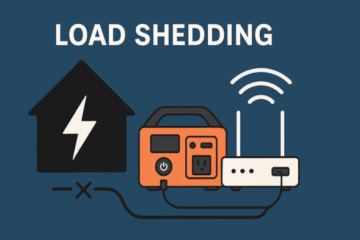In today’s rapidly aging world, the demand for Senior Care Services has grown exponentially. These services are a combination of professional, personal, medical, and emotional care offered to seniors to help them live with dignity, comfort, and safety. Whether it’s full-time care in a specialized facility or in home senior care Alberta, seniors and their families now have a variety of trusted options to choose from.
Senior Care Services can include everything from basic help with activities of daily living (ADLs), such as bathing and dressing, to advanced skilled nursing care, dementia care, memory care, and even hospice and palliative care. Families facing the emotional challenge of caring for aging parents or loved ones often turn to these services for support and peace of mind. These care solutions have evolved to meet diverse needs with flexibility, respect, and a focus on enhancing quality of life.
As the aging population in regions like the United States and Canada expands, more families are seeking trustworthy and compassionate Senior Care Services. According to the National Institute on Aging (NIA), by 2030, one in five Americans will be over the age of 65. This demographic shift places enormous pressure on public health systems, families, and communities to provide accessible and quality care.
Senior Care Services are now not just about necessity—they are about enabling elderly independence, improving wellness, and supporting families with the care coordination they can’t manage alone. Seniors who receive professional care often live longer, healthier, and more connected lives, whether they are in nursing homes, senior living communities, or opting for in home senior care Alberta.
Types of Senior Care Services Available Today
In-Home Senior Care Services
In-home senior care is one of the most popular options for elderly individuals who prefer to age in the comfort of their own homes. This type of care provides assistance with daily activities, medication management, companionship, and even medical support when required. Professional senior care providers often include licensed caregivers, nurses, or health aides who tailor their services based on individual needs. For families in Canada, in home senior care Alberta has become a valuable solution offering both flexibility and high standards of care.
Assisted Living Facilities
Assisted living services are designed for seniors who require help with personal care but do not need the full-time medical supervision of a nursing home. These communities typically offer private apartments, communal dining, activities, and 24/7 staff availability. Assisted living bridges the gap between independent living and skilled nursing care, providing peace of mind for families and a socially engaging environment for seniors.
Nursing Homes and Skilled Nursing Facilities
Nursing home care provides round-the-clock medical attention for seniors who need more advanced care. These facilities are staffed with licensed medical professionals who manage chronic diseases, post-surgery recovery, and cognitive impairments like dementia. Many services in nursing homes are funded through Medicare, Medicaid, or private long-term care insurance. According to the Centers for Medicare & Medicaid Services (CMS), skilled nursing care includes therapy services, wound care, IV treatment, and rehabilitation.
Memory Care and Dementia Support
Memory care units are specialized environments designed to support individuals with Alzheimer’s disease or other forms of dementia. These secure, structured settings help reduce confusion and anxiety while offering therapeutic activities tailored to cognitive conditions. Trained caregivers provide compassionate, round-the-clock support, helping families feel assured their loved ones are safe.
Hospice and Palliative Care
When seniors face terminal or life-limiting illnesses, hospice and palliative care prioritize comfort and dignity. Services include pain management, emotional counseling, and support for both the senior and their family. Hospice is typically provided at home or in hospice facilities by organizations aligned with ethical care standards such as those set by the Department of Health and Human Services (HHS).
Adult Day Care Centers
These centers serve as structured daytime environments for elderly adults who may need supervision or companionship during the day. They provide meals, physical activities, health monitoring, and social interaction—making them ideal for seniors living with family caregivers who may need respite care for seniors.
Top Benefits of Senior Care Services
The emotional and physical benefits of Senior Care Services cannot be overstated. Seniors who receive consistent care are not only healthier but also more emotionally resilient. Here’s why these services matter:
- Enhanced Quality of Life: Personalized attention leads to improved daily routines, better sleep, and emotional stability.
- Relief for Family Caregivers: Families gain peace of mind and time to rest, work, or reconnect, knowing that professional help is in place.
- Tailored Care and Support: Whether it’s geriatric care management, medication reminders, or senior nutrition planning, care is based on what each senior truly needs.
- Social Connection and Companionship: Isolation is dangerous for seniors. With senior companion services, individuals remain socially engaged and emotionally fulfilled.
- Safety and Security: Fall prevention, routine check-ins, and professional monitoring help avoid emergencies and reduce hospital visits.
How to Choose the Right Senior Care Services
Step 1: Understand the Level of Care Needed
Is your loved one mostly independent or experiencing memory loss? Do they need round-the-clock nursing care or just help a few times a week? This first step informs whether you’ll need in-home care, assisted living, or more advanced long-term senior care.
Step 2: Compare Costs and Services
Costs vary dramatically. In-home senior care may cost less per hour but more over time. Assisted living includes housing and meals but may have fewer medical services. Nursing homes offer the most care but at the highest price. Discuss options with your insurance provider and explore programs like Medicaid for financial aid.
Step 3: Evaluate Senior Care Providers
Look for providers with proper licensing, transparent service plans, and positive reviews. Ask about caregiver screening processes, emergency protocols, and specialized training for issues like dementia care or chronic disease management.
Paying for Senior Care Services
Senior care can be expensive, but several funding sources are available:
- Medicare: Limited coverage, mostly for medical and rehab services.
- Medicaid: Covers many forms of long-term care, especially for low-income seniors.
- Long-Term Care Insurance: Policies vary but typically cover assisted living, nursing care, and in-home services.
- Private Pay and Savings: Often needed to cover gaps not handled by insurance.
- Government Aid Programs: Many states, especially for in home senior care Alberta, offer tax credits, grants, or reduced-rate programs.
Top Senior Care Networks and Agencies
Trustworthy brands like Home Instead Senior Care, Right at Home, Visiting Angels, and Comfort Keepers offer comprehensive care plans, compassionate caregivers, and a focus on family communication. For regional needs, especially in Alberta, several government-backed and private agencies deliver award-winning Senior Care Services.
Legal and Ethical Considerations in Elder Care
Elder care isn’t just about physical wellbeing—it includes legal and ethical rights.
- Elder Law and Advocacy: Protect your loved one’s rights regarding property, health decisions, and end-of-life care.
- Power of Attorney and Advance Directives: These legal documents ensure that care preferences are honored.
- Abuse and Neglect Prevention: Always vet providers and remain involved to safeguard against potential mistreatment.
Technology and the Future of Senior Care
Tech is revolutionizing Senior Care Services:
- Remote Monitoring and Telehealth allow doctors to check vitals from a distance.
- Medical Alert Systems ensure help is just a button away.
- AI-powered caregiving bots and aging-in-place innovations are becoming standard in modern homes.
Conclusion
Choosing the right Senior Care Services is a life-changing decision—for both seniors and their families. With the right provider, your loved one can enjoy independence, safety, and happiness, while you gain peace of mind. From in home senior care Alberta to full-scale nursing homes, solutions are more personalized and accessible than ever before.
Whether you’re preparing for future needs or facing urgent decisions, trusted Senior Care Services offer compassionate, expert support every step of the way. Take your time, ask questions, and remember: the goal is to create a life of dignity and comfort for those who once gave us the same.
Frequently Asked Questions
How do I know if my parent needs Senior Care Services?
If they struggle with daily tasks, forget medications, or show signs of isolation, it’s time to explore senior care options.
What’s the difference between home care and assisted living?
Home care offers flexible, personal support at home, while assisted living is a residential community with 24/7 services.
Is financial aid available for senior care?
Yes. Medicaid, veterans’ benefits, state programs, and long-term care insurance may help reduce costs.
How are caregivers selected and screened?
Reputable agencies conduct background checks, training programs, and regular performance reviews.
Can I get 24-hour senior care at home?
Absolutely. Many agencies now offer round-the-clock support with rotating staff.
Stay in touch to get more updates & alerts on Erome! Thank you



